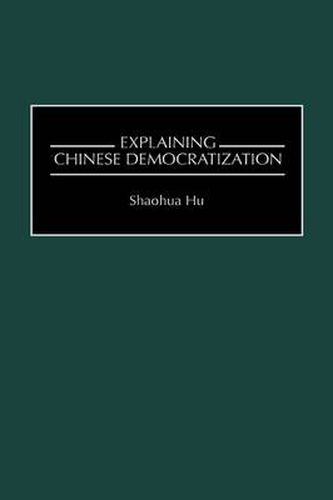Readings Newsletter
Become a Readings Member to make your shopping experience even easier.
Sign in or sign up for free!
You’re not far away from qualifying for FREE standard shipping within Australia
You’ve qualified for FREE standard shipping within Australia
The cart is loading…






Hu seeks to explain China’s failure to establish a democratic system. He demonstrates both continuity and change in China’s democratization process. Modern China regards power and wealth as primary goals and treats a strong state as a major means to these ends. Such a preference puts democracy on a back burner.
Employing a theoretical framework which consists of five factors-historical legacies, local forces, the world system, socialist values, and economic development-Hu shows that, while all of these factors were at work in all eras, each assumes a special significance in a particular period. Traditional China before the 1911 Revolution attempted to adjust itself to a new, Western-dominated world. In the Republican era, the control of local forces topped the political agenda. Nationalist China sought to survive and develop in the world system, while Maoist China set for itself the task of building a socialist state. And, of course, economic development has been the priority of the Deng era. As Hu shows, these five factors have had determining impacts on the long struggle for democracy in China.
$9.00 standard shipping within Australia
FREE standard shipping within Australia for orders over $100.00
Express & International shipping calculated at checkout
Hu seeks to explain China’s failure to establish a democratic system. He demonstrates both continuity and change in China’s democratization process. Modern China regards power and wealth as primary goals and treats a strong state as a major means to these ends. Such a preference puts democracy on a back burner.
Employing a theoretical framework which consists of five factors-historical legacies, local forces, the world system, socialist values, and economic development-Hu shows that, while all of these factors were at work in all eras, each assumes a special significance in a particular period. Traditional China before the 1911 Revolution attempted to adjust itself to a new, Western-dominated world. In the Republican era, the control of local forces topped the political agenda. Nationalist China sought to survive and develop in the world system, while Maoist China set for itself the task of building a socialist state. And, of course, economic development has been the priority of the Deng era. As Hu shows, these five factors have had determining impacts on the long struggle for democracy in China.